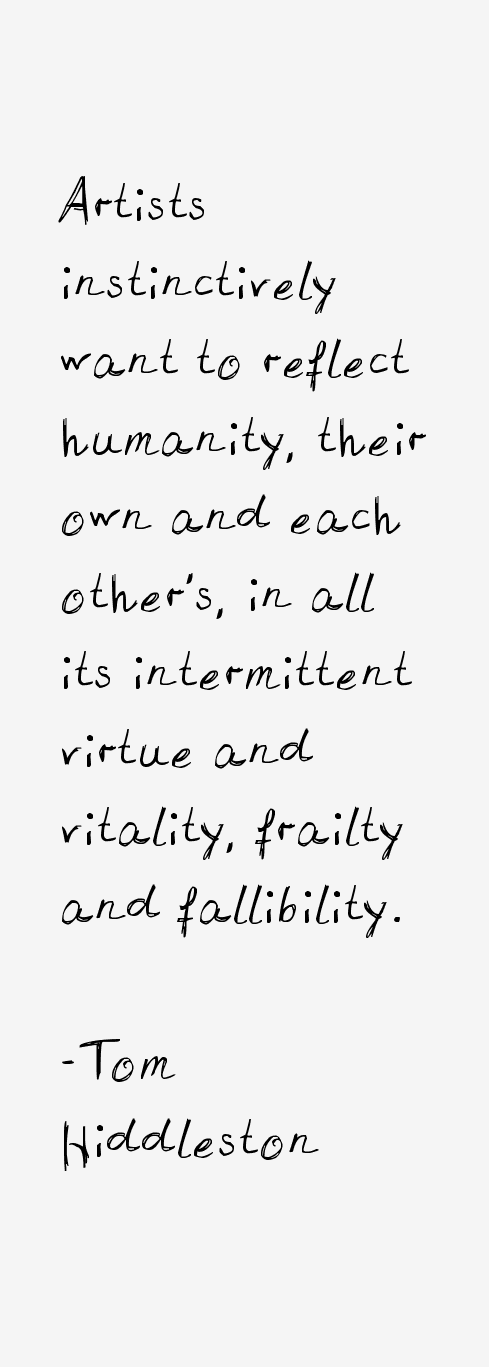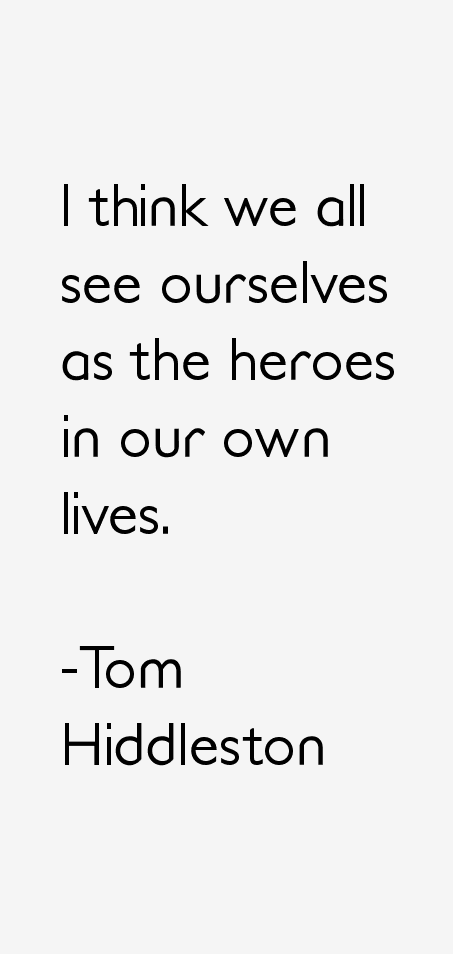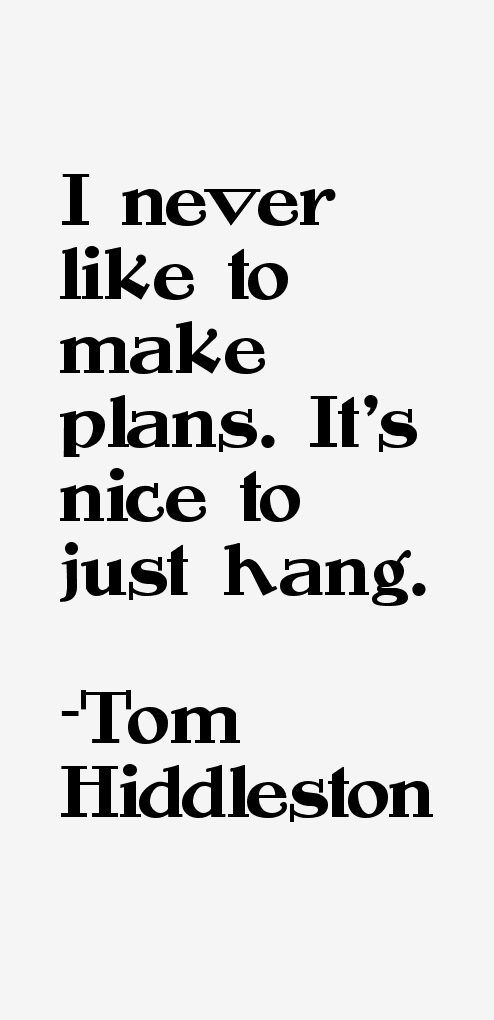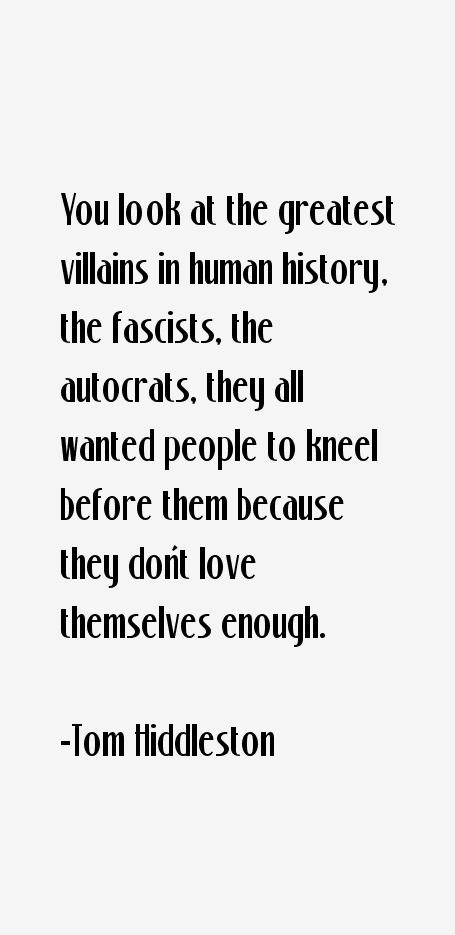Tom Hiddleston Quotes & Sayings (Page 2)
Tom Hiddleston quotes and sayings page 2 (44 year old actor). Here's quote # 11 through 20 out of the 43 we have for him.
“For myself, for a long time... maybe I felt inauthentic or something, I felt like my voice wasn't worth hearing, and I think everyone's voice is worth hearing. So if you've got something to say, say it from the rooftops.”

“Artists instinctively want to reflect humanity, their own and each other's, in all its intermittent virtue and vitality, frailty and fallibility.”

“I think we all see ourselves as the heroes in our own lives.”
“Showing young children in these communities, that there are outlets for their feelings, that there is room in a space for their stories to be told, and that they will be applauded - and it's not about ego, it's about connection: that their pain is everybody else's pain.”
“Our job is to represent the truth of human nature, whether you're playing a tender love story that's set in a coffee shop or whether you're in 'The Avengers,' which is set in a Manhattan which is exploding.”
“I've done my share of period stuff. I'm not sure why, but people say I have a period face. The bread and butter of British TV is Jane Austen adaptations and bridges and bonnets and boats and horses.”

“I never like to make plans. It's nice to just hang.”

“You look at the greatest villains in human history, the fascists, the autocrats, they all wanted people to kneel before them because they don't love themselves enough.”
“I did a production of 'Journey's End,' an RC Sherriff play about World War I, at the Edinburgh Festival. I was 18 and it was the first time that people I knew and loved and respected came up to me after the show and said, 'You know, you could really do this if you wanted to.'”
“My father and I used to tussle about me becoming an actor. He's from strong, Presbyterian Scottish working-class stock, and he used to sit me down and say, 'You know, 99 percent of actors are out of work. You've been educated, so why do you want to spend your life pretending to be someone else when you could be your own man?'”
Tom Hiddleston Quotes Rating
No Ratings Yet
Leave A Comment
























